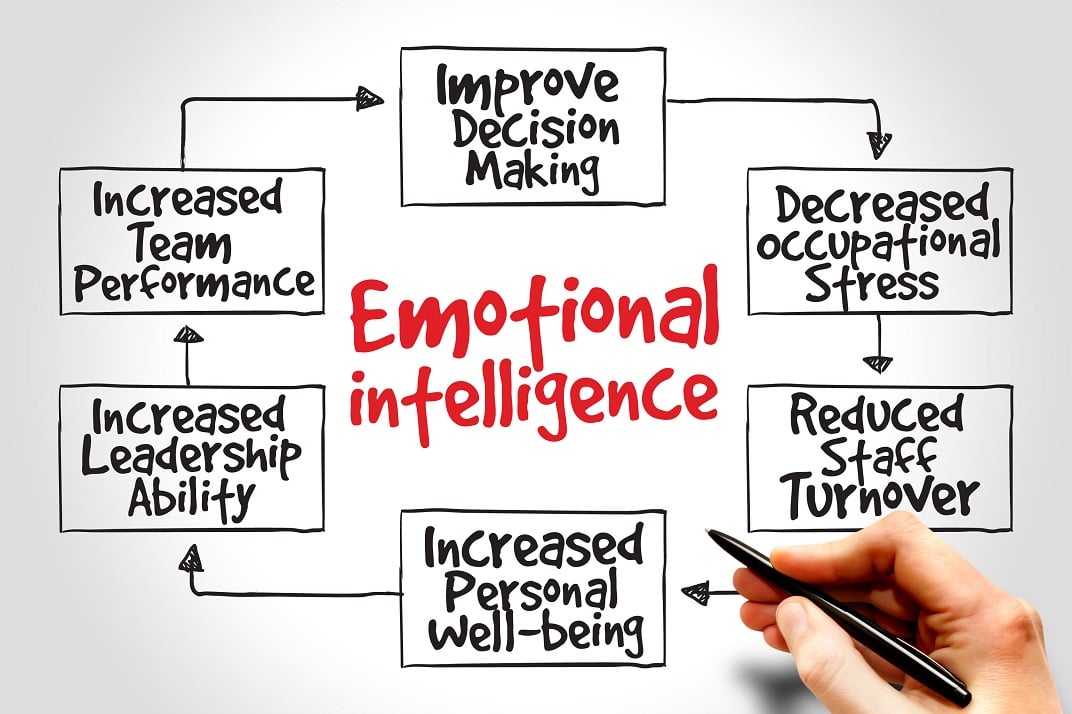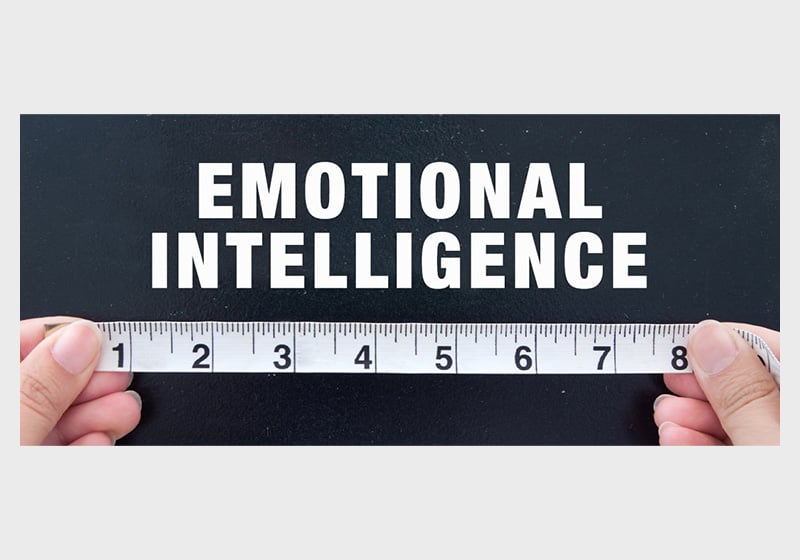Table of Contents
Emotional intelligence: what it is and why it’s important for companies
For HR professionals, emotional intelligence is highly sought after, especially for management roles. Why is it so important? Well, it’s a soft skill that can help build a happier and more productive working environment. That’s why, if you’re in a management role or want to strengthen your team, we recommend that you read on to learn more about emotional intelligence. We’ll help you better understand what it is and how it can help leaders and firms.
Emotional intelligence: what it means
The idea of emotional intelligence was first clearly defined in 1990 by psychologists John Mayer and Peter Salovey. In their words, it is: “the ability to monitor one’s own and others’ feelings and emotions, to discriminate among them and use this information to guide one’s thinking and actions”.
But it was Daniel Goleman who popularised the concept in his 1995 book Emotional Intelligence. Why It Can Matter More Than IQ. Goleman defined emotional intelligence as: “the capacity for recognising our own feelings and those of others, for motivating ourselves, and for managing emotions well in ourselves and in our relationships.” But what does all this have to do with business leadership?

Daniel Goleman and emotional intelligence in the workplace
One of Goleman’s key insights was to understand the importance of soft skills in the workplace. To be a good leader, it is not enough to have great technical abilities (hard skills) and a high intelligence quotient (IQ): just as important is a set of emotional and social skills that we call “emotional intelligence” and that determine out emotional quotient (EQ).
In this short presentation, Goleman lists the skills that a leader with emotional intelligence should have. Let’s take a closer look these.
- Self-awareness. The ability to recognise your own emotions, strengths and limitations.
- Self-management. The ability to control yourself and adapt to change.
- The conviction and drive to achieve your goals.
- The ability to recognise and understand the emotions and feelings of other people in order to tailor your interactions with them accordingly.
- Relationship skills.The ability to optimise relationships with people in so as to make them more productive and create a harmonious working environment in which people are more motivated, share common goals and are not in conflict.
As you can see, it’s a mix of skills that allows you to better know yourself, have more control over your reactions, and understand and motivate the people who work with you.
The benefits of emotional intelligence for your company
Greater satisfaction, motivation and optimism; a positive attitude towards work; more resistance to stress; better performance; reduced staff turnover; higher productivity. This is how life at work improves for managers and staff when people have emotional intelligence. So it’s vital that this soft skill is taken into account when a company hires new employees, and is fostered and developed to bring teams together and get the best out of everybody. But how do you assess and develop this skill?

Testing for emotional intelligence
Emotional intelligence can be learnt and developed says Goleman. If you feel that you have little empathy, often have conflicts or misunderstandings with the people you work with, struggle to control your emotions or are simply curious, then get tested. A willingness to be self-critical is already a great place to start.
You could also ask for feedback (perhaps in anonymous form) from your colleagues: you’ll likely discover aspects of yourself that you never knew existed, strengths or weaknesses that you had no inkling of.
This feedback will give you better awareness of who you are and how others perceive you, enabling you to assess yourself with greater objectivity and improve your skills.

